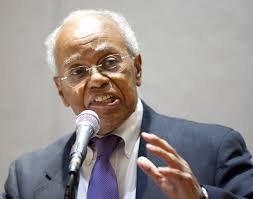Maj. Gen. Joseph Alfred McNeil Sr., one of the legendary Greensboro Four whose courageous action in 1960 helped ignite the U.S. Civil Rights Movement, passed away on September 4, 2025, at the age of 83. McNeil’s death has prompted reflections nationwide—not only on a singular moment of protest, but on six decades of service, leadership, and the long arc of change he helped bend.
Early Life and Civil Rights Legacy
Born in Wilmington, North Carolina on March 25, 1942, McNeil grew up during the height of Jim Crow segregation. He attended Williston Senior High School before earning a full scholarship to North Carolina Agricultural & Technical State University (A&T). As a student there in February 1960, McNeil, then 17, joined three peers—Franklin McCain, David Richmond, and Ezell Blair Jr. (now Jibreel Khazan)—in staging a sit-in at the Woolworth’s “whites only” lunch counter in Greensboro. When staff refused service, the four remained seated until the store closed. Their nonviolent protest sparked similar actions across the South, helping lay groundwork for the Civil Rights Act of 1964.
Military and Professional Life
After graduating from A&T in 1963 with a degree in engineering and physics, McNeil joined the U.S. Air Force through the ROTC program. Over decades of service—including combat or support missions during the Vietnam era—he rose to the rank of Major General in the Air Force Reserves.
Outside the military, McNeil also built a career in investment banking and public service, contributing to business, diversity, and civil rights efforts throughout his life. His civic engagement, both local and national, affirmed the belief that leadership, when paired with courage, can yield enduring change.
Reflections and Reactions
At the time of his passing, McNeil was one of the last living members of the Greensboro Four, with Jibreel Khazan as the only other surviving member. University leaders, civil rights historians, and local communities paid tribute, emphasizing McNeil’s role not merely as a protestor, but as a mentor, a model of integrity, and someone who demonstrated how young people’s moral clarity could influence history. Chancellor James R. Martin II of North Carolina A&T noted that McNeil and his classmates “inspired a nation with their courageous, peaceful protest, powerfully embodying the idea that young people could change the world.”
Why This Matters
Joseph McNeil’s life matters far beyond the details of a lunch counter protest. He showed how a single act, well-resisted, can ignite a movement. In today’s environment—with growing discussions about civil rights, racial equity, and what active citizenship means—his example provides perspective: protest, when grounded in nonviolence and conviction, can cross generations.






